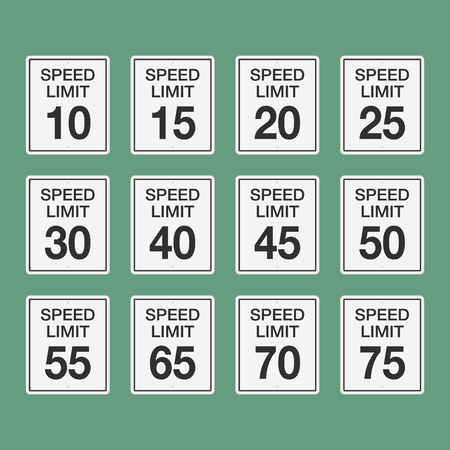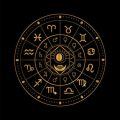1. Introduction to Zodiac Signs in Indian Context
In the rich tapestry of Indian culture, zodiac signs hold a place of profound significance, blending ancient wisdom with daily life practices. Unlike the Western twelve-sign zodiac system, Indian astrology—referred to as Jyotish Shastra—places primary importance on concepts like Rashi (zodiac sign) and Nakshatra (lunar mansion). These terms are deeply embedded in local languages and customs, shaping not only personal identity but also influencing major milestones such as naming ceremonies, marriages, and religious observances. The belief in Rashi and Nakshatra is not just limited to horoscope readings; it permeates into rituals, festival timings, and even decision-making in household matters. Understanding these indigenous terminologies provides valuable insight into how traditional customs and astrological beliefs are seamlessly interwoven in Indian society, making astrology an integral part of cultural expression and community life.
2. Historical Significance of Zodiac Signs in Indian Traditions
Zodiac signs, known as “Rashis” in Sanskrit, have deep historical roots in Indian traditions, especially within the framework of Vedic astrology or Jyotish Shastra. The role of zodiac signs extends far beyond personal horoscopes; they are woven into the very fabric of Indian rituals, festivals, and daily customs. The ancient scriptures such as the Rigveda, Atharvaveda, and various Puranas reference celestial bodies and their influence on human life, underscoring the enduring significance of astrology in Indian culture.
The Foundation of Jyotish Shastra
Jyotish Shastra, one of the six Vedangas, is dedicated to the study of astronomy and astrology. It systematically categorizes the sky into twelve Rashis (zodiac signs) based on the apparent path of the Sun across the celestial sphere. This classification system plays a crucial role in shaping traditional beliefs and practices. In fact, the Panchangam (Hindu calendar) used for determining auspicious timings for rituals and ceremonies is fundamentally based on astrological calculations involving these zodiac signs.
Historical References in Ancient Scriptures
The following table illustrates key references to zodiac signs found in major Indian scriptures:
| Scripture | Reference to Zodiac Signs | Cultural Significance |
|---|---|---|
| Rigveda | Mention of Nakshatras (lunar mansions) | Basis for timing Vedic rituals |
| Brihat Samhita | Detailed analysis of Rashis and planets | Foundation for Jyotish Shastra practices |
| Puranas (e.g., Vishnu Purana) | Description of planetary influences on life events | Guidance for societal customs and festivals |
| Atharvaveda | Astrological omens and their interpretations | Influence on folk beliefs and rural traditions |
Zodiac Signs in Rituals and Social Life
Zodiac signs are integral to several Indian customs such as naming ceremonies (Namkaran), marriage matching (Kundali Milan), and determining Muhurta (auspicious timings). The individuals Rashi is often consulted before embarking on important life events. This practice not only reflects faith in astrological guidance but also demonstrates how astrology is seamlessly interwoven with Indian social structure. Thus, the historical significance of zodiac signs continues to resonate through generations, shaping both spiritual outlook and everyday decisions in Indian society.

3. Zodiac Signs in Daily Indian Life
In India, zodiac signs, or Rashi, are deeply woven into the fabric of daily life, shaping customs and personal decisions with a distinct cultural flavour. The influence of astrology begins at birth, as many families consult astrologers to draw up a child’s Kundali (natal chart), which is based on the planetary positions at the exact time and place of birth.
Name Selection and Zodiac Influence
The process of choosing a name for a newborn is often guided by the individuals zodiac sign. Each sign is associated with specific syllables deemed auspicious for naming. Families refer to these recommendations to ensure the chosen name aligns with the child’s astrological profile, believing it will attract positive energies and good fortune throughout life.
Auspicious Timings: The Role of Muhurat
Another significant aspect where zodiac signs play a pivotal role is in determining Muhurat, or auspicious timings, for important events such as weddings, housewarming ceremonies (Griha Pravesh), and business inaugurations. Astrologers consult the stars and planetary alignments according to one’s zodiac sign to select dates and times that promise prosperity and success, ensuring that rituals are performed under favourable cosmic influences.
Kundali Milan: Matchmaking Traditions
Perhaps most famously, zodiac signs are central to matchmaking through Kundali Milan. Before an arranged marriage, families compare the horoscopes of the prospective bride and groom, analysing compatibility factors like Guna Milan (point-based compatibility system) and Doshas (potential astrological flaws). This practice reflects deep-rooted beliefs in astrology’s power to foster harmony and avoid future discord in marital relationships.
Through these everyday customs—be it greetings that reference one’s star sign, personal milestones timed by celestial advice, or marriages arranged after careful horoscope matching—zodiac signs remain an integral part of Indian traditional customs, blending ancient wisdom with contemporary life.
4. Integration of Zodiac Signs in Major Indian Festivals and Rituals
In India, the significance of zodiac signs (Rashis) goes beyond mere astrology; it is deeply woven into the tapestry of traditional customs and rituals, particularly during religious festivals, birth ceremonies, and marriage rituals. The belief that planetary positions at the time of birth influence an individual’s destiny is a core aspect of Indian spirituality, reflected in various cultural practices.
Role of Zodiac Signs in Religious Festivals
During major Hindu festivals such as Diwali, Makar Sankranti, and Navratri, many families consult astrologers or Panchang (Hindu calendar) to determine auspicious timings based on individual or family members’ zodiac signs. For example, specific pujas or rituals are recommended for each Rashi during these festivals to invoke blessings and ward off negative influences. This personalization ensures that spiritual practices align with cosmic energies unique to every individual.
Zodiac Signs and Birth Ceremonies (Namkaran Sanskar)
The Namkaran Sanskar, or naming ceremony, is one of the most significant samskaras (rites of passage) in Hindu tradition. Traditionally, the first letter of the child’s name is chosen according to their Janma Rashi (moon sign at birth). Astrologers refer to the baby’s horoscope (Janam Kundali) to suggest suitable syllables for names that harmonize with the child’s astrological profile. This practice is believed to bestow positive vibrations and foster prosperity throughout life.
| Birth Rashi | Suggested Starting Syllables for Names |
|---|---|
| Mesha (Aries) | A, L, E |
| Vrishabha (Taurus) | B, V, U |
| Mithuna (Gemini) | K, Chh, Gh |
| Karka (Cancer) | D, H |
Zodiac Signs in Marriage Rituals
Marriage holds a sacred position in Indian society and astrology plays a pivotal role in matching horoscopes (Kundali Milan) before finalizing alliances. Compatibility between prospective brides’ and grooms’ zodiac signs is meticulously analyzed to ensure harmony and prosperity. Key factors include Guna Milan (matching of qualities), Mangal Dosha consideration, and assessment of planetary positions affecting marital bliss.
| Astrological Aspect | Influence on Marriage Rituals |
|---|---|
| Kundali Milan | Determines compatibility through 36-point system based on zodiac aspects. |
| Mangal Dosha Check | Assesses potential challenges due to Mars’ placement; specific remedies performed if needed. |
| Nakshatra Matching | Ensures favorable star alignment for long-lasting relationships. |
Cultural Relevance across Communities
This integration of zodiac signs is not limited to Hinduism but can also be observed among Jain, Sikh, and some Muslim communities in India who have adapted astrological considerations into their respective customs. Thus, astrology forms an essential bridge connecting tradition with contemporary life events in Indian society.
5. Influence of Zodiac Signs on Indian Pop Culture and Media
In contemporary India, zodiac signs have evolved beyond their traditional roles and are now a significant element in pop culture and media. The rising fascination with astrology is evident across various platforms, such as television serials, newspapers, magazines, and digital content. Indian daily soaps often incorporate astrological themes, with characters consulting astrologers or horoscopes influencing dramatic plot twists. Newspapers continue to dedicate entire sections to daily, weekly, and monthly horoscopes in both English and regional languages, reflecting how deeply zodiac beliefs are embedded in everyday life.
On digital platforms, the trend has surged further. Social media influencers frequently share astrological content tailored for an Indian audience, blending humour with relatable cultural references. Popular streaming services feature shows or web series centred around astrology, such as matchmaking based on star signs or stories exploring personality traits linked to specific rashis (zodiac signs). Even Bollywood movies occasionally weave in zodiac-related motifs, either to add mystique or as a driving force behind character decisions.
This growing visibility has made zodiac discussions more mainstream among urban youth, who see astrology not only as a tradition but also as a fun way to connect with peers. Special apps and online portals dedicated to Indian astrology attract millions of users seeking personalised predictions or compatibility analysis. As a result, the influence of zodiac signs on Indian popular culture continues to expand, bridging generational gaps and blending age-old customs with modern entertainment formats.
6. Contemporary Attitudes towards Zodiac Signs in Indian Society
The perception of zodiac signs and astrology in India has witnessed significant transformation, especially with the rapid pace of modernisation and increased exposure to scientific thought. In contemporary Indian society, attitudes towards zodiac signs differ considerably between urban and rural populations, reflecting an ongoing negotiation between tradition and modernity.
Urban Perspectives: Balancing Rationality and Tradition
In metropolitan cities like Mumbai, Delhi, and Bengaluru, there is a growing emphasis on rational thinking, scientific temper, and evidence-based decision-making. Many urban Indians, particularly the younger generation, view astrology as a cultural artefact or a form of entertainment rather than a tool for serious life decisions. However, despite this scientific outlook, horoscopes and zodiac signs continue to play a role in important milestones such as marriage alliances (kundali matching), naming ceremonies (namkaran), and festival celebrations. This duality reflects the unique ability of urban Indians to blend global perspectives with their deep-rooted traditions.
Media Influence and Popular Culture
Indian popular media—ranging from daily newspapers to television shows—frequently features daily horoscopes and discussions about zodiac compatibility. Social media platforms have further amplified interest among tech-savvy youth, sometimes transforming traditional beliefs into memes and light-hearted content. Nevertheless, a section of urban society remains critical of astrological practices, advocating for more scientific approaches to life’s challenges.
Rural Realities: Astrology as Guiding Principle
In contrast, rural India often continues to uphold astrology and zodiac signs as integral aspects of daily life. For many families in villages across Uttar Pradesh, Tamil Nadu, or West Bengal, astrological consultations are sought before major events such as crop sowing, housewarming rituals (griha pravesh), or even choosing auspicious dates for travel. Here, astrology is not only seen as tradition but also as practical guidance handed down through generations.
The Role of Traditional Practitioners
Village astrologers (jyotishis) command immense respect and are consulted for matters ranging from health concerns to economic ventures. While some rural youth show curiosity towards alternative viewpoints thanks to educational initiatives and mobile connectivity, the influence of family elders ensures that zodiac-based customs remain prominent.
Evolving Middle Grounds
The increasing interconnectedness between urban and rural India—through migration, education, and digital communication—is fostering nuanced perspectives on astrology. While science education encourages questioning of superstitions, respect for ancestral wisdom persists. Thus, Indian society today embodies a spectrum of attitudes: from strict adherence to astrological customs to selective adaptation or even outright scepticism.
Ultimately, the interplay between zodiac signs and Indian traditional customs continues to evolve. Whether embraced as sacred guidance or engaged with playfully in modern lifestyles, astrology remains an enduring facet of India’s cultural mosaic.


